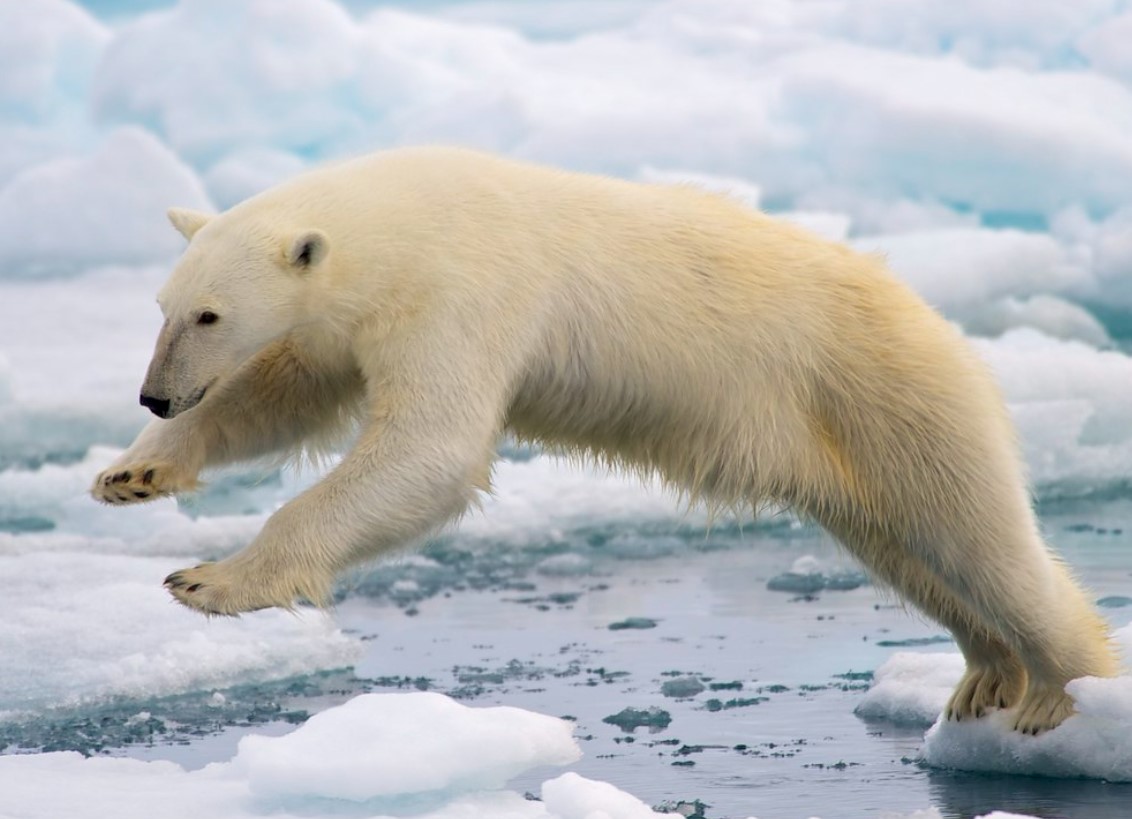Polar bears in Canada’s Hudson Bay are struggling to adapt to longer ice-free periods in the Arctic, which threaten their survival, according to a new study. The study, published in the journal Nature Communications, used video camera GPS collars to track the polar bears for three-week periods over the course of three years, and found that they were unable to find enough food on land to compensate for the loss of their main prey, seals, on the sea ice.

Polar bears depend on sea ice for hunting
Polar bears are the largest land predators in the world, and they rely on the sea ice that covers the Arctic Ocean during the colder months to hunt their preferred prey, ringed and bearded seals. The seals provide the polar bears with the fat and calories they need to survive the harsh conditions and to build up reserves for the warmer months, when the sea ice melts and the bears have to spend more time on land.
Polar bears have evolved to cope with seasonal fluctuations in the availability of food, and they can enter a state of “walking hibernation”, where they reduce their activity and metabolism to conserve energy. However, this state is not as effective as the true hibernation of other bears, and polar bears still need to find some food sources on land, such as berries, grasses, birds, eggs, rodents, and carcasses.
Climate change is shrinking the sea ice and extending the ice-free periods
Climate change is having a dramatic impact on the Arctic, which is warming between two and four times faster than the rest of the world. One of the most visible consequences of this warming is the shrinking of the sea ice, both in extent and thickness, which reduces the habitat and hunting grounds of the polar bears.
The study focused on the western Hudson Bay, where the ice-free period has increased by three weeks from 1979 to 2015, meaning that in the last decade bears were on land for approximately 130 days. The researchers expected that the polar bears would adapt to this longer ice-free period by resting more and entering a deeper state of walking hibernation.
Polar bears are active but unsuccessful in finding food on land
However, the study found that only two out of the 20 polar bears monitored actually rested and reduced their energy expenditure to levels similar to hibernation, while the other 18 remained active and tried to find food on land. The researchers observed that the polar bears ate a variety of foods, such as grasses, berries, a gull, a rodent, and a seal carcass, and that some of them swam long distances or played with each other.
However, these activities did not provide the polar bears with enough calories to match their normal marine mammal prey, and 19 out of the 20 polar bears lost weight during the study period, consistent with the amount of weight they would lose during a period of fasting. The researchers concluded that the polar bears were unable to adapt to the longer ice-free periods, and that they faced a high risk of starvation as the sea ice continued to decline.
Polar bears need urgent action to protect their future
The study adds to the growing body of evidence that polar bears are vulnerable to the effects of climate change, and that they may not be able to survive in a warming world without sea ice. The International Union for Conservation of Nature (IUCN) has classified polar bears as vulnerable, and estimates that there are about 25,000 polar bears remaining in the wild, distributed in 19 subpopulations across the Arctic.
The researchers called for urgent action to reduce greenhouse gas emissions and to protect the remaining sea ice and the polar bears’ habitat. They also suggested that other measures, such as providing supplemental food or relocating polar bears, could be considered as temporary solutions, but they warned that these interventions could have unintended consequences and ethical implications.








